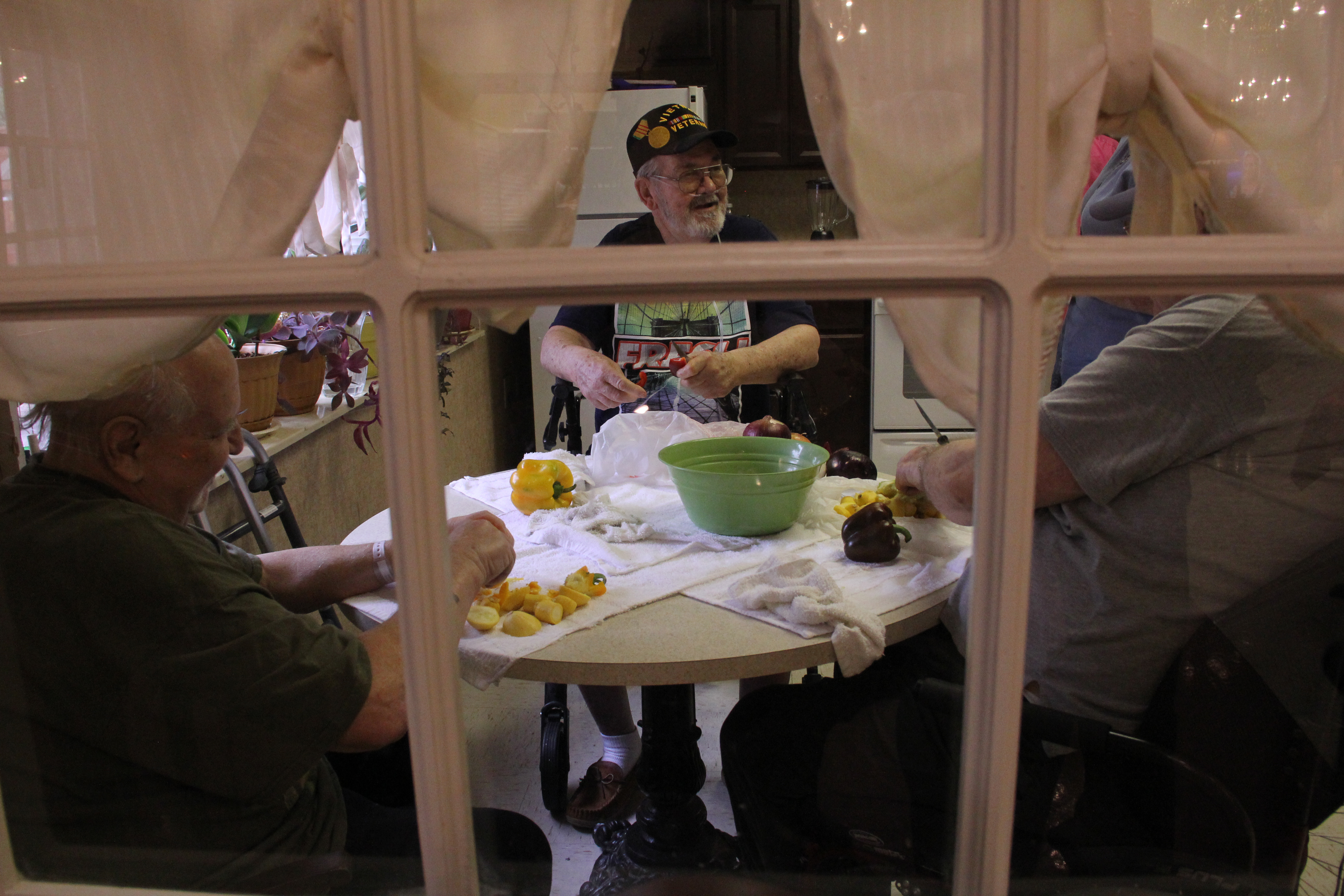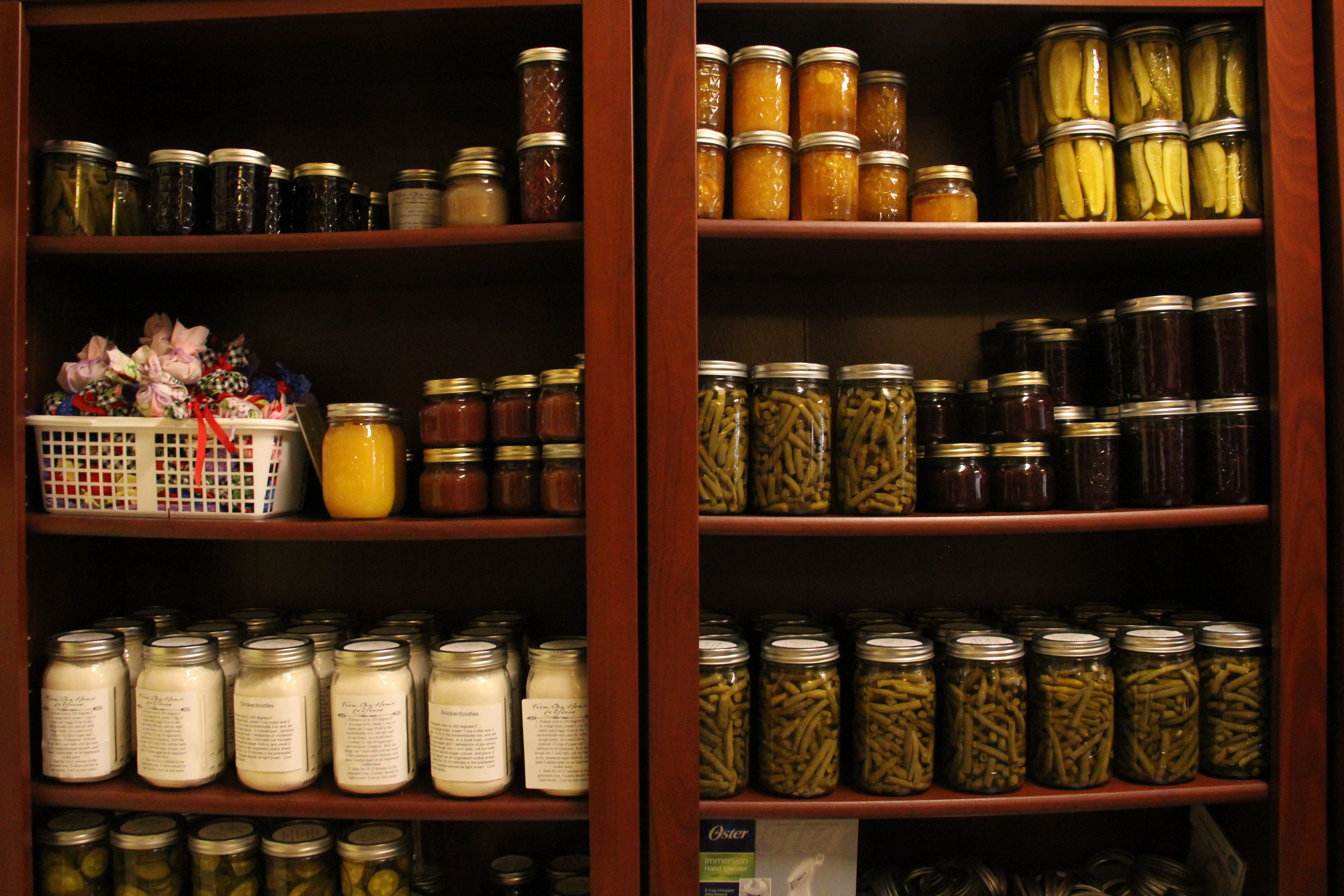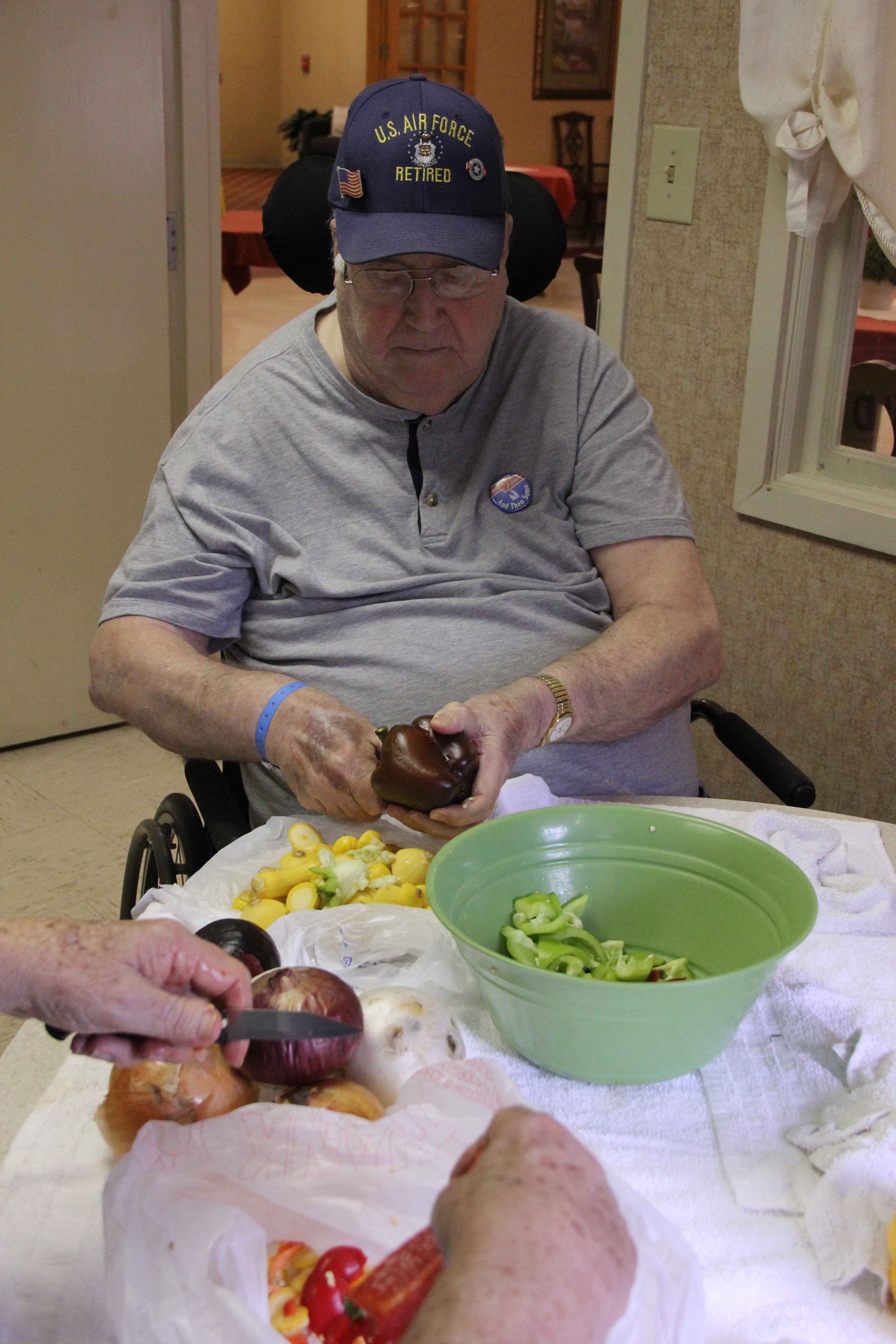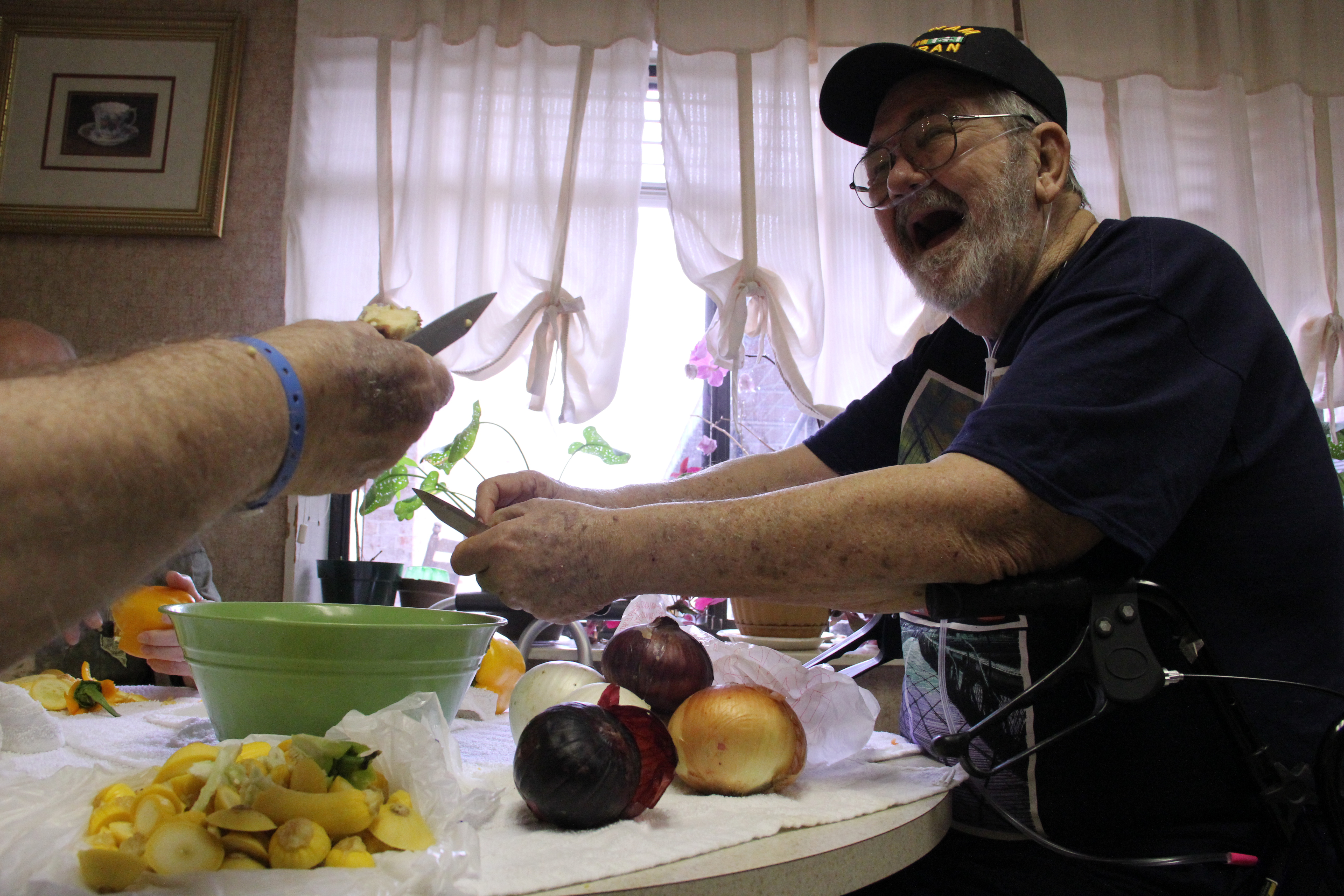TO BUYThe canned goods made by residents at Life Care Center of East Ridge sell for $2 for a half-pint to $6 for a quart. They can be purchased Monday through Saturday from 9:30 a.m. to 4:30 p.m. The center is located at 1500 Fincher Ave. in East Ridge. For more information, call 894-1254.
Marion Young has been canning vegetables since he was a kid growing up on a Georgia farm.
"Mom made sure I knew how to grow vegetables, can them and cook them," says Young, 82, a resident of Life Care Center of East Ridge.
Today, nearly seven decades later, Young is still working with vegetables. He's one of a small group of residents at the center who cans vegetables, jellies and jams year-round, then sells them so they can do it all over again.
"We call it the 'Canning for a Cause' program," says Christian McDonald, the center's activities director, who started the canning effort, about 2 1/2 years ago. "We're doing it to benefit others. It's not about what we can do for ourselves because the money primarily goes to other organizations.
"I came up with the idea after hearing about another facility whose residents had just snapped green beans. And though that sounded fun, I wasn't just going to go buy green beans, snap them and throw them away," McDonald says. "So I came up with the idea of canning, selling the product and using the money to support our fundraising efforts. At the facility, we take on a different charity each month (including Operation Christmas Child and Operation Homefront) as well as helping to support kids in foster care and hospitals.
"It's a very productive program. They all work hard," says McDonald, explaining that she typically buys fresh vegetables and fruits from the Chattanooga Market. "I keep it local."
McDonald says the center's residents, who are typically baby boomers and older, grew up in a time when food was not wasted.
"It's not unusual for many of our residents to have grown up on farms," she says. "A lot of them lived in rural areas and their families had gardens. Canning was part of their lives."
Young, who has been living at the East Ridge facility since November 2011, says he's comfortable in a kitchen. And for good reason. He served as a mess sergeant for 17 years in the U.S. Air Force, where it was his job to make sure the soldiers were fed well.
Though Young is no longer in charge of a kitchen and no longer cooks, he does get to can, something he also enjoys. From pickles to green beans to okra, from cranberries, jellies, jams and salsa, Young is in the kitchen every Monday morning at Life Care Center, overseeing a small group of residents who help in every step of the canning process.
"He's the boss," says fellow resident and canner James Mathis, 71.
"I grew up on a farm in West Tennessee," Mathis says. "We mostly grew vegetables and cotton, but I spent a lot of time in the kitchen, watching my mother canning vegetables. My favorite was her bread-and-butter pickles."
The canning group, typically about four people, sit around a small round table where they begin the process. Depending on the residents' mobility abilities, he or she will assist in the washing, chopping, blanching, food processing, pouring the mixture into the jars and the jar-boiling process. The canning takes a full day each week, McDonald says.
"It's fun," says resident Bernie Swan, 71, who has been at the center for 11 weeks. He grew up in Alabama and, like Mathis and Young, lived on a farm, so the canning process brings back good memories of his childhood.
"We had 3,000 acres of cotton," Swan says. "We had a 10-acre garden and what we didn't eat we'd give it to the homeless. I used to milk the cows, slop the pigs and help my mother in the kitchen. And I helped her can, too."
Swan says farming taught him to be responsible.
"I'd get up at 6 in the morning and work in the garden before I went to school at 8," he says. "I'd come home from school, do my homework and then grab the tractor and head to the field. It was hard work, but we always had something good to eat. Peeling the vegetables here brings back good memories."
Contact Karen Nazor Hill at khill@timesfreepress.com or 423-757-6396.




